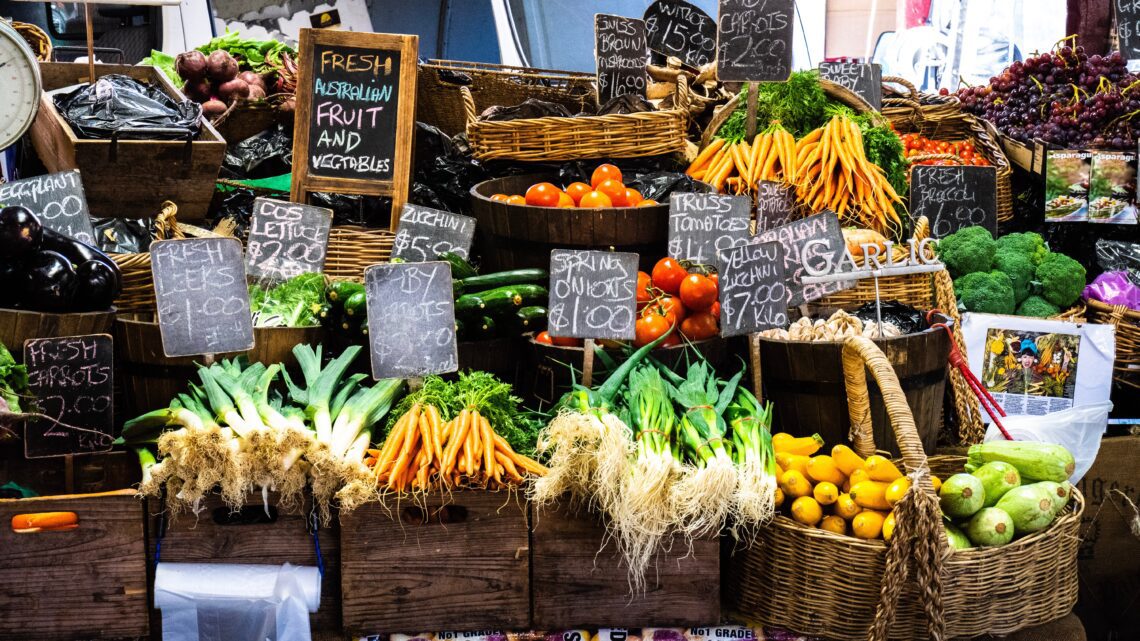
For the love of cabbage
Many people think the same things when it comes to grocery shopping.
People walking through the automatic doors of their closest supermarket chain, rolling carts down the narrow aisles of produce and dry goods and finally waiting their turn to pay.
But those who overlook alternative ways to buy their groceries, miss out on the fresh produce and goods local farmers and vendors’ offer at markets. Especially during winter months.
Within the Greater Toronto Area (GTA), there are various year-round farmers’ markets. They have made a commitment to supporting local farmers and also committed to giving them a space to share their purpose, ethics and passion about what they grow year-round.
Nicole Jacobs, the Dufferin Grove Farmers’ Market manager, says, “I think running the market itself allows us to support local farmers. They can sell their goods, they can promote their brand of who they are and they can connect with the community, which is important.”
Emma Vredenburg is Evergreen Farmers’ market’s visitor experience and operations manager.
According to Vredenburg, the meaningful connections farmers make with customers help to sustain their business. They educate consumers on the best times to grow and eat fruits and vegetables.
“This cycle creates excitement as consumers look forward to seeing specific items on the tables during certain months,” she says. “For example, blueberries in late summer, apples in the fall, fiddleheads and asparagus in the spring and root vegetables and preserved goods in the winter.”
Markets such as The Stop Farmers’ Market, provide services that make the morning set-up less difficult and close the gap between the producer and consumer.
“We offer support to our vendors, who are new farmers and local business operators, in offering discounted vendor fees, access to a table/tent for the market, free access to our greenhouse and commercial kitchen and connecting them with other vendors for mentorship and support,” says Hilda Nouri, the urban agriculture manager at The Stop’s Farmers’ Market.
But despite the commitment of year-round farmers’ markets, selling during Toronto’s cold winter season comes with its challenges. Customers who show up in the summer often don’t visit markets during the winter months.
“Market patrons usually decrease in numbers during the winter months, so there is a decrease in sales for most,” says Nouri. “This could be for many reasons, including less interest or awareness of farmers’ markets in the winter and decreased ability to travel to the market during winter.”
Another reason is the difference in products available during the winter. Jacobs says that people are more attracted to fruits and leafy greens that are prominent in the summer months. As a result, the root vegetables that thrive in winter don’t receive the same appreciation.
Additionally, when the ground freezes in the winter, the growing season changes for farmers.
“Not all vendors and farmers have enough crops to come to the market during the winter months. It may be that what they have is just not enough,” says Jacobs. “Some farmers may stop coming once it’s December, and then they will return in April, May or June depending on what they have.”
However, the adaptability and persistence of year-round farmers’ markets is something to be admired. They have established many programs and resources that help local businesses and minorities.
Nouri says The Stop operates a 10-metre greens program in a greenhouse, which hires those facing employment challenges. They use their Indigenous Garden Program to work with local bakers and they have partnered with Black Creek Community Health Centre to offer free spots to graduates from their Black entrepreneurship program.
The Dufferin Grove Farmers’ Market has established their Community Fridges organization to help customers who may be facing financial struggles and to help make them feel welcomed.
“Farmers can put a couple of goods on the table, and people can just take things if they can’t afford to shop. No questions asked. You can just go to that table, and so everyone can walk through the market with the same dignity and leave with something regardless of what they brought in their pocket that day,” says Jacobs.
The Dufferin Grove Farmers’ Market aims to eliminate the idea that farmers’ markets are only for people earning a certain income.
Needless to say, there is a lot to appreciate about year-round farmers’ markets. There are different ways to keep them going around the GTA. Jacobs says people should attend, spread the word and find root vegetable recipes—since that’s the kind of produce sold.
Nouri says donating and volunteering helps markets operate at their best all year-round. This includes community gardens and kitchens.
Appreciating and celebrating year-round farmers’ markets in the winter helps more than market managers. Local farmers, community gardens, underprivileged individuals and those with a craving for root veggies, also experience the benefits.
About the author
Grace Nelson-Gunness is a reporter for Youth Mind. She enjoys watching Criminal Minds or reading a suspenseful horror-thriller novel while drinking a vanilla latte.







